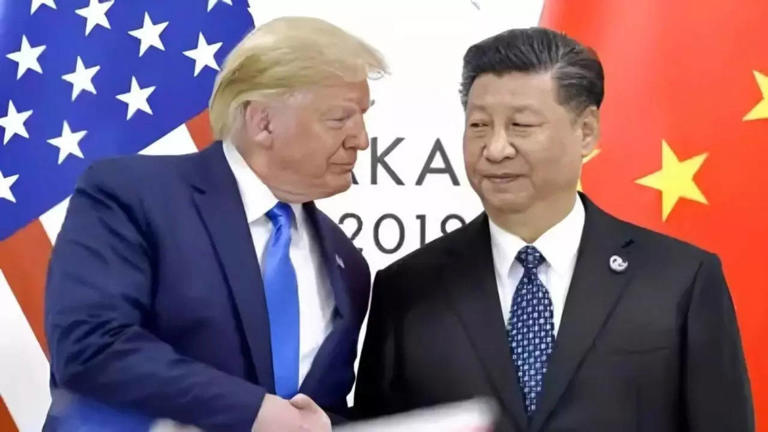China Slams Trump’s Tariffs as Economic Bullying, Warns US Tactics Will Backfire
In a strong and unequivocal response to escalating trade tensions, China has denounced the latest round of tariffs proposed by former U.S. President Donald Trump, labeling them as acts of “economic bullying” that will inevitably “backfire.” The statement, issued by China’s Ministry of Foreign Affairs, comes amid a new wave of reciprocal tariffs set to hit Chinese imports with duties as high as 104% starting Wednesday. These new trade measures, according to Beijing, are not only unjust but fundamentally damaging to both nations and the broader global economy.
The Chinese government, under the leadership of President Xi Jinping, made it clear that pressure tactics and threats—particularly in the form of economic sanctions—are unacceptable approaches to international diplomacy. China’s official stance underscores that it will continue to take firm and resolute measures to protect its sovereignty, security, and developmental interests. Emphasizing the long-term consequences, Beijing warned that actions like imposing excessive tariffs shift economic risks onto others and ultimately hurt the initiator, reiterating that such strategies will “ultimately backfire.”
The strongly worded declaration from the Ministry of Foreign Affairs characterized the U.S. administration’s moves as part of a misguided economic warfare strategy. It specifically condemned the use of tariffs as tools to suppress China’s development and undermine the legitimate economic rights of its people. China urged the United States to cease these aggressive tactics and to instead adopt policies that reflect mutual respect, economic balance, and shared global responsibility.
The current state of U.S.-China relations has been strained by a series of tit-for-tat tariff exchanges, which originated during Trump’s first term in office. The latest escalation, including a 10% general tariff on imports and an aggressive 34% duty on Chinese goods, has prompted Beijing to respond both diplomatically and economically. China has already filed a formal complaint with the World Trade Organisation (WTO), requesting dispute consultations on the legality of these tariffs, asserting that they violate the General Agreement on Tariffs and Trade (GATT) and existing international trade obligations.
China has strongly emphasized that trade relations between the world’s two largest economies should be based on mutual benefit and cooperation, not confrontation. The statement reiterated that economic partnerships should not become battlegrounds for political leverage. The Chinese leadership expressed a firm belief that only through peaceful, fair, and equal dialogue can sustainable and mutually rewarding outcomes be achieved.
Furthermore, China rejected the idea of negotiating under duress, calling Washington’s current approach “a mistake on top of a mistake.” Officials from the Ministry of Commerce have described the U.S. stance as one of blackmail, and vowed that China will “fight to the end” to defend its interests. The Xi government insists that it will not yield to threats and will instead respond with countermeasures designed to preserve national dignity and economic stability.
As the U.S. continues to push forward with an aggressive tariff agenda, analysts and global trade experts warn that this growing economic conflict could have severe implications for global markets, supply chains, and diplomatic relations. For China, the focus remains on maintaining peace, stability, and a constructive path forward through cooperation, not coercion.
The unfolding trade war marks a critical point in global economic history, with ramifications that stretch far beyond the bilateral relationship between Washington and Beijing. The world now watches closely as both powers navigate a complex web of economic nationalism, trade law, and geopolitical strategy.
For more updates and in-depth video news coverage, visit our YouTube channel THE OLIGO.

